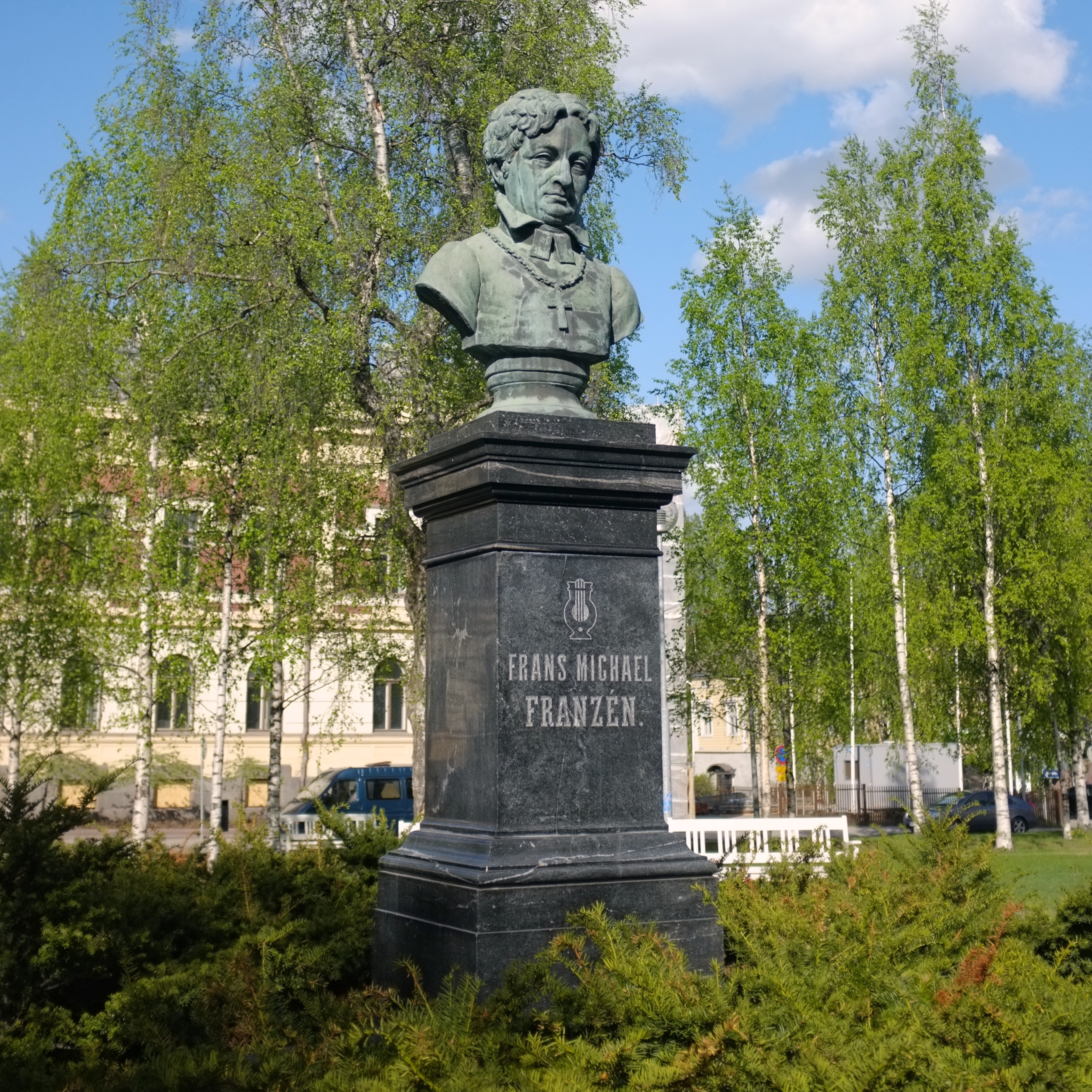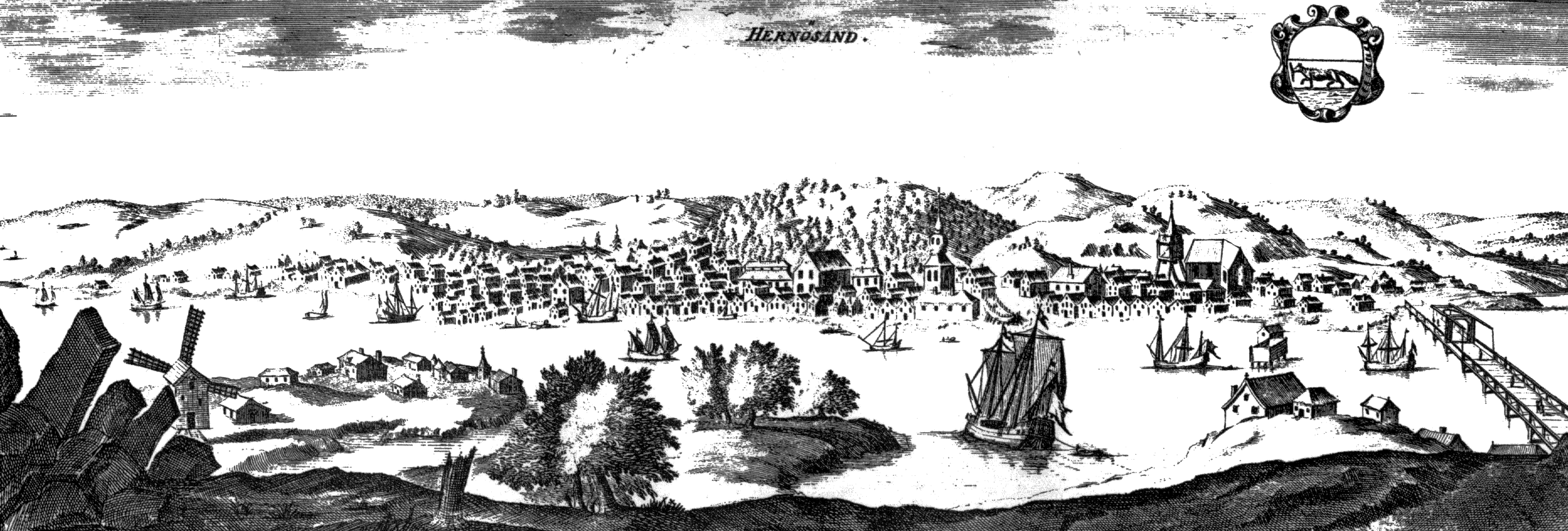|
Carl Olof Rosenius
Carl Olof Rosenius (February 3, 1816 – February 24, 1868) was a Swedish lay preacher, author and editor of the monthly ''Pietisten'' (The Pietist) from 1842 to 1868.''Twice-Born Hymns'' by J. Irving Erickson, (Chicago: Covenant Press, 1976) p. 111. He was one of the country's most widely-heard preachers of his day and has been described as being of "extraordinary importance for the low-church evangelical revival not only in Sweden but also in the other Nordic countries". Biography Family and childhood Rosenius was born in Nysätra in Västerbotten while his father, Anders Rosenius, was serving there as a parish pastor. His mother, Sara Margareta Norenius, was the daughter of Olof Norenius, a clergyman. Before Rosenius was born, his mother dreamed that he would be used by God. He was the third child of seven. His six siblings included Eric Andreas – who died as an infant – another brother also named Eric Andreas, Claes Johan, Sara Magdalene, Margareta Eliana, and . Tw ... [...More Info...] [...Related Items...] OR: [Wikipedia] [Google] [Baidu] |
Pietisten
("The Pietist") was a Swedish Christian monthly publication "for religious revival and edification", founded in January 1842 by the Scottish Methodist minister George Scott, who had immigrated to Sweden, and edited by preacher Carl Olof Rosenius until his death in 1868, after which the editorship was taken over by Paul Peter Waldenström. In the last years, the editorial staff included Janne Nyrén (1914–1915), Johan Peter Norberg (from 1916), Theodor Andersson (from 1917) and Jakob Emanuel Lundahl (1918). Around 10,000 copies of the journal were published between 1853 and 1865. The journal was for the Mission Friends but was spread widely: selections were copied, translated, and published freely at the time. A Finland-Swedish version entitled ('The Evangelical Messenger') was also published. The word ''pietist'', from the Latin word , meaning 'piety, godliness', refers to the Pietist movement. During Rosenius' editorship, the magazine was essentially written by him, and w ... [...More Info...] [...Related Items...] OR: [Wikipedia] [Google] [Baidu] |
Robertsfors Municipality
Robertsfors Municipality () is a municipalities of Sweden, municipality in Västerbotten County in northern Sweden. Its administrative centre, seat is located in Robertsfors. History In 1759 the small village Edfastmark became Robertsfors Bruk. It was the Republic of Ireland, Irishman John Jennings and his brother-in-law, the Scotsman Robert Finlay, who founded the new ironworks which also got its name, Robertsfors, from Robert Finlay. Localities There are three urban areas in Sweden, localities (or urban areas) in Robertsfors Municipality: The municipal seat in emphasis (typography), bold Notable natives *Carl Olof Rosenius, revivalist preacher *Frida Hyvönen, artist *Maud Olofsson, politician *Sahara Hotnights, rock group References External links *Robertsfors Municipality – Official site {{authority control Municipalities of Västerbotten County ... [...More Info...] [...Related Items...] OR: [Wikipedia] [Google] [Baidu] |
Conversion To Christianity
Conversion to Christianity is the religious conversion of a previously non-Christian person to Christianity. Different Christian denominations may perform various different kinds of rituals or ceremonies initiation into their community of believers. The most commonly accepted ritual of conversion in Christianity is through baptism, but this is not universally accepted among them all. A period of instruction and study almost always ensues before a person is formally converted into Christianity and becomes a church member, but the length of this period varies, sometimes as short as a few weeks and possibly less, and other times, up to as long as a year or possibly more. Most mainline Christian denominations will accept conversion into other denominations as valid, so long as a baptism with water in the name of the Trinity took place, but some may accept a simple profession of faith in Jesus as Lord as being all that was needed for true conversion. Other Christians may not accept ... [...More Info...] [...Related Items...] OR: [Wikipedia] [Google] [Baidu] |
Lutheran
Lutheranism is one of the largest branches of Protestantism, identifying primarily with the theology of Martin Luther, the 16th-century German monk and reformer whose efforts to reform the theology and practice of the Catholic Church launched the Protestant Reformation. The reaction of the government and church authorities to the international spread of his writings, beginning with the '' Ninety-five Theses'', divided Western Christianity. During the Reformation, Lutheranism became the state religion of numerous states of northern Europe, especially in northern Germany, Scandinavia and the then- Livonian Order. Lutheran clergy became civil servants and the Lutheran churches became part of the state. The split between the Lutherans and the Roman Catholics was made public and clear with the 1521 Edict of Worms: the edicts of the Diet condemned Luther and officially banned citizens of the Holy Roman Empire from defending or propagating his ideas, subjecting advocates of Lutheranis ... [...More Info...] [...Related Items...] OR: [Wikipedia] [Google] [Baidu] |
Frans Michael Franzén
Frans Michael Franzén (9 February 1772 – 14 August 1847) was a Swedish-Finnish poet and clergyman. He served as the Bishop of the Diocese of Härnösand. Biography Franzén was born in Oulu ( sv, Uleåborg), Northern Ostrobothnia, Sweden (now part of Finland). At thirteen he entered the Royal Academy of Turku, where he attended the lectures of Henrik Gabriel Porthan (1739–1804), a pioneer in the study of Finnish history and folklore. He graduated in 1789, and became ''eloquentiae docens'' in 1792. Three years later he started on a tour through Denmark, Germany, France and England, returning in 1796 to accept the office of university librarian at Turku in Finland. In 1801 he became professor of history and ethics, in 1808 he was elected a member of the Swedish Academy and in 1815 a member of the Royal Swedish Academy of Sciences. He was a member of Pro Fide et Christianismo, a Christian education society. Finland was ceded by Sweden to Russia in 1809 after the Finnish War, ... [...More Info...] [...Related Items...] OR: [Wikipedia] [Google] [Baidu] |
Röbäck
Röbäck is a locality situated in Umeå Municipality, Västerbotten County, Sweden Sweden, formally the Kingdom of Sweden,The United Nations Group of Experts on Geographical Names states that the country's formal name is the Kingdom of SwedenUNGEGN World Geographical Names, Sweden./ref> is a Nordic country located on ... with 2,230 inhabitants in 2010. References External links Röbäckat Umeå Municipality Populated places in Umeå Municipality {{Västerbotten-geo-stub ... [...More Info...] [...Related Items...] OR: [Wikipedia] [Google] [Baidu] |
Church Of Sweden
The Church of Sweden ( sv, Svenska kyrkan) is an Evangelical Lutheran national church in Sweden. A former state church, headquartered in Uppsala, with around 5.6 million members at year end 2021, it is the largest Christian denomination in Sweden, the largest Lutheran denomination in Europe and the third-largest in the world, after the Ethiopian Evangelical Church Mekane Yesus and the Evangelical Lutheran Church in Tanzania. A member of the Porvoo Communion, the church professes Lutheranism. It is composed of thirteen dioceses, divided into parishes. It is an open national church which, working with a democratic organisation and through the ministry of the church, covers the whole nation. The Primate of the Church of Sweden, as well as the Metropolitan of all Sweden, is the Archbishop of Uppsala. Today, the Church of Sweden is an Evangelical Lutheran church. It is liturgically and theologically "high church", having retained priests, vestments, and the Mass during the ... [...More Info...] [...Related Items...] OR: [Wikipedia] [Google] [Baidu] |
Venia Concionandi
, also referred to as , is a special authorization for a lay person to preach and conduct the church service in Lutheran churches, such as the Church of Sweden and the Evangelical Lutheran Church of Finland. It has been implemented at different times in different areas: the concept in Sweden dates back to the Church Law of 1686; in Alsace–Lorraine in the German Empire, it was put into place in 1855. It was intended as a role for theology students going into the ministry, as a form of preparation, according to scholar . It has also been described as "having a dual function: that of acknowledging lay preachers derived from the many revivalist movements, whilst also controlling them." In one case in Savonlinna, Finland, one man was denied the position after it was discovered he was not even a member of the Church of Finland; he was a leader of the Russian Pentecostal movement. A person who holds is called a . has traditionally been conferred by the bishop; in Sweden after the tu ... [...More Info...] [...Related Items...] OR: [Wikipedia] [Google] [Baidu] |
Uppsala
Uppsala (, or all ending in , ; archaically spelled ''Upsala'') is the county seat of Uppsala County and the List of urban areas in Sweden by population, fourth-largest city in Sweden, after Stockholm, Gothenburg, and Malmö. It had 177,074 inhabitants in 2019. Located north of the capital Stockholm it is also the seat of Uppsala Municipality. Since 1164, Uppsala has been the ecclesiology, ecclesiastical centre of Sweden, being the seat of the Archbishop of Uppsala, Archbishop of the Church of Sweden. Uppsala is home to Scandinavia's largest cathedral – Uppsala Cathedral, which was the frequent site of the coronation of the Swedish monarch until the late 19th century. Uppsala Castle, built by King Gustav I of Sweden, Gustav Vasa, served as one of the royal residences of the Swedish monarchs, and was expanded several times over its history, making Uppsala the secondary capital of Sweden during its Swedish Empire, greatest extent. Today it serves as the residence of the Gover ... [...More Info...] [...Related Items...] OR: [Wikipedia] [Google] [Baidu] |
Härnösand
Härnösand () is a locality and the seat of Härnösand Municipality in Västernorrland County, Sweden with 17,556 inhabitants in 2010. It is called "the gate to the High Coast" because of the world heritage landscape just a few miles north of Härnösand. Härnösand is the seat of the Diocese of Härnösand. History On 10 December 1885, Härnösand became the first town in Sweden with electric street lighting, following the Gådeå power station being taken into use. Education Härnösand is the seat of The National Agency for Special Needs Education and Schools (''Specialpedagogiska skolmyndigheten''). The Swedish International Development Cooperation Agency (Sida) operates its training programme Sida Partnership Forum in Härnösand. Industry One of the biggest employers in Härnösand is the cable-TV and Cable internet service provider Com Hem. Sports The women's team of the bandy club Härnösands AIK plays in the highest division and the men's team has don ... [...More Info...] [...Related Items...] OR: [Wikipedia] [Google] [Baidu] |
Gymnasium (school)
''Gymnasium'' (and variations of the word) is a term in various European languages for a secondary school that prepares students for higher education at a university. It is comparable to the US English term '' preparatory high school''. Before the 20th century, the gymnasium system was a widespread feature of educational systems throughout many European countries. The word (), from Greek () 'naked' or 'nude', was first used in Ancient Greece, in the sense of a place for both physical and intellectual education of young men. The latter meaning of a place of intellectual education persisted in many European languages (including Albanian, Bulgarian, Estonian, Greek, German, Hungarian, the Scandinavian languages, Dutch, Polish, Czech, Serbo-Croatian, Macedonian, Slovak, Slovenian and Russian), whereas in other languages, like English (''gymnasium'', ''gym'') and Spanish (''gimnasio''), the former meaning of a place for physical education was retained. School structure Be ... [...More Info...] [...Related Items...] OR: [Wikipedia] [Google] [Baidu] |



.jpg)
.jpg)


